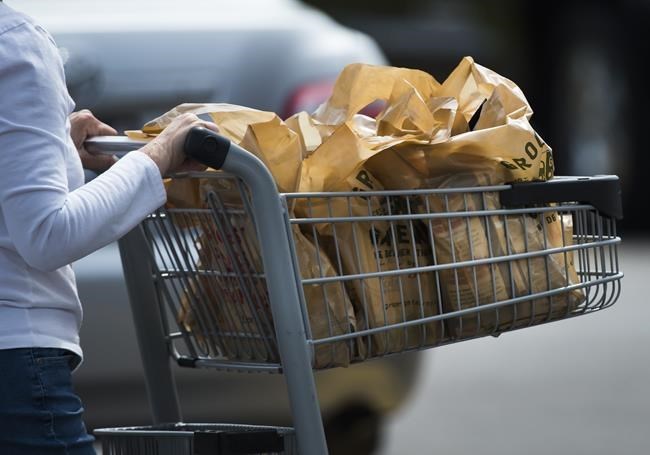An industry group set up to hammer out a Canadian grocery code of conduct is getting closer to a final document, even as the way its terms will be enforced remains unclear.
A new working draft of the grocery code viewed by The Canadian Press and verified by two grocery sector sources lays out the fundamental elements of the industry-led accord, which aims to increase "fair and ethical dealing" across the grocery supply chain in Canada.
Still, while a final code is anticipated this spring, several potentially large stumbling blocks remain.
The draft notes that dispute resolution mechanisms are still under development, though it notes that an escalating range of options from informal discussions to formal arbitration are on the table.
It also appears to be undecided how enforcement would be handled and how membership and participation in the code will work.
The industry committee working on the grocery code was established in response to contentious fees being charged to suppliers by large grocery retailers.
While its not unusual for grocery stores to charge vendors fees for such services as marketing, shelf placement, inventory costs, packaging and deliveries, these costs have historically been negotiated between retailers and suppliers.
However, big grocery chains have increasingly unilaterally imposed new or higher charges on suppliers, putting smaller grocers without the same clout at a disadvantage.
The issue came to a head in 2020 when Walmart Canada announced a fee hike that prompted United Grocers Inc., a national buying group that represents Metro Inc., to tell suppliers it expected the same.
Within months, Loblaw Companies Ltd. moved in the same direction, telling suppliers the cost of getting products on shelves would rise to help fund improvements to the grocer’s in-store and digital operations.
Industry observers at the time cautioned that the trend of big grocers using their market weight to impose fees without negotiations could lead to less competition, higher food costs and fewer brands on store shelves.
The industry-led grocery code of conduct was proposed as a way to address long-standing issues such as arbitrary fees, cost increases imposed without notice and late payments.
The code aims to offer retailers and suppliers a mechanism for how fees and fines are levied in the grocery industry.
The final code, slated to be ready in the coming weeks, is also expected to address the issue of supply in the grocery sector, ensuring smaller, independent grocers get fair access to goods.
This report by The Canadian Press was first published March 30, 2023.
Brett Bundale, The Canadian Press



